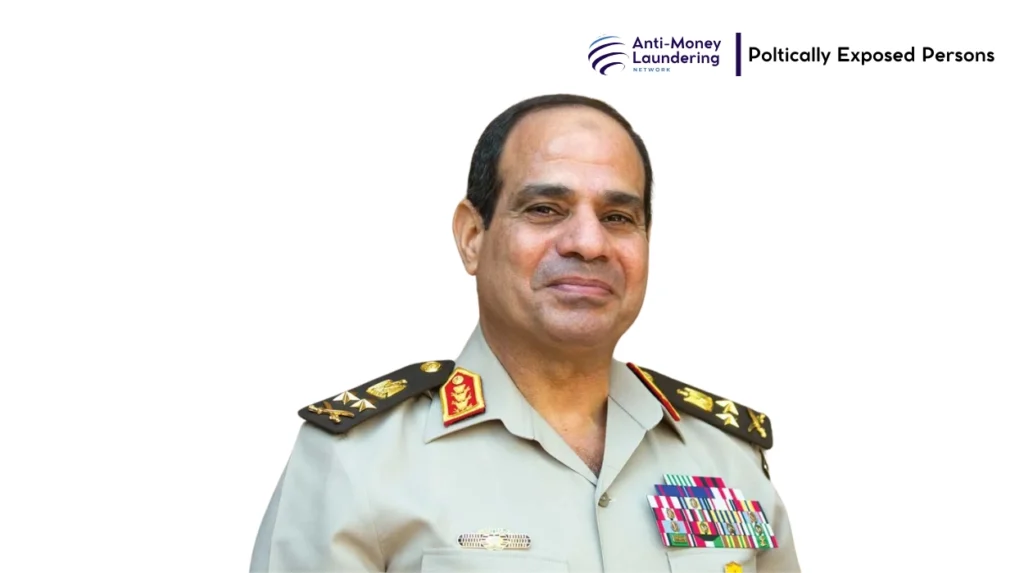Abdel Fattah el-Sisi’s presidency epitomizes the intertwining of political authority and financial misconduct in Egypt. Allegations of money laundering, nepotism, and leveraging state institutions for illicit gain highlight deep systemic corruption and a fragile rule of law that protects elites while undermining transparency and accountability.
Abdel Fattah el-Sisi is a high-profile Politically Exposed Person whose tenure as Egypt’s president is marked by allegations of systemic abuse of power, including the use of state mechanisms to facilitate illicit financial flows and political influence operations abroad. His family’s involvement in financial crime enforcement bodies undermines independent oversight, suggesting a politicized and nepotistic approach enabling elite impunity. Despite credible media investigations and international legal actions abroad, no sanctions or convictions have been secured against him, reflecting the entrenched political control and opacity of the Egyptian political system. The available evidence highlights the vulnerabilities of state institutions under his regime to exploitation for corruption and money laundering, with significant impacts on both domestic governance and international financial integrity.

